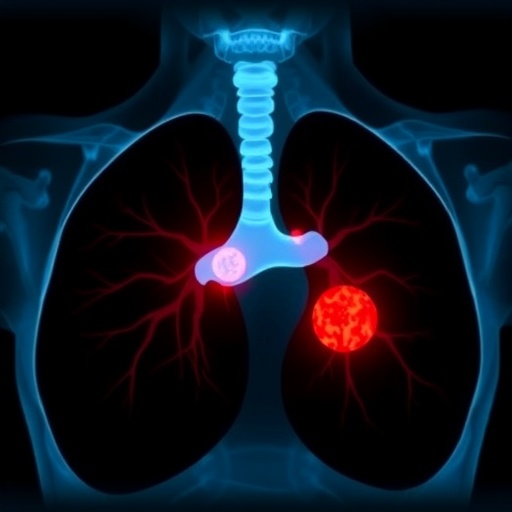
In recent years, the rising prevalence of Helicobacter pylori (H. pylori) infections among immigrant and refugee populations in the United States has raised significant public health concerns. This bacterium, a leading cause of peptic ulcers and gastric cancer, often remains undiagnosed and untreated, leading to long-term health complications. A recent article by Radhakrishnan et al. in the Journal of General Internal Medicine highlights a pioneering pilot program aimed at enhancing the screening and treatment of H. pylori within these vulnerable communities. This initiative has the potential to reshape strategies for managing gastrointestinal diseases in this diverse demographic.
H. pylori is a Gram-negative bacterium that colonizes the human stomach lining. Its discovery has transformed our understanding of gastrointestinal diseases, but the challenges in diagnosing and treating infections persist, particularly among immigrants and refugees. These populations often face barriers such as language differences, limited access to healthcare, and a lack of awareness regarding gastrointestinal diseases. The article by Radhakrishnan and colleagues emphasizes the critical need for targeted interventions to mitigate these barriers and enhance health outcomes.
The pilot program described in the research aims to address these barriers by providing culturally competent care and utilizing community health workers to facilitate engagement. This innovative approach recognizes that effective communication and understanding cultural nuances are integral to fostering trust and encouraging individuals to seek medical attention for H. pylori infections. By tailoring outreach efforts to meet the specific needs of immigrant and refugee groups, the program strives to ensure that screening and treatment initiatives are not only accessible but also acceptable within these communities.
One of the central components of the pilot program is the implementation of community-based screening events. These events are designed to engage individuals in their local environments, providing them with convenient access to screening services. Attendees are able to learn more about H. pylori and its associated health risks while undergoing testing. This proactive approach not only raises awareness but also empowers individuals to take charge of their health, recognizing the significance of early detection and treatment in preventing serious health conditions.
In addition to screening, the pilot program emphasizes the importance of follow-up care and treatment adherence. The authors note that even when individuals test positive for H. pylori, many may not follow through with treatment due to various factors, including fear of medical procedures or misunderstanding treatment protocols. The program includes education on the treatment regimen, emphasizing its simplicity and effectiveness, thus aiming to increase adherence rates among participants.
To evaluate the effectiveness of this program, the researchers employed a range of metrics, including screening rates, treatment initiation, and patient-reported outcomes. Preliminary results have shown promising trends, highlighting an increase in both screening and treatment rates within the targeted populations. This data reinforces the idea that community-driven interventions can significantly improve healthcare access and quality, particularly in underserved areas.
An essential aspect of the article is its discussion about the importance of collaboration among healthcare providers, community organizations, and public health agencies. By creating a network of support, the pilot program not only benefits individual patients but also contributes to broader public health goals. This collective approach enhances resource sharing and maximizes the program’s impact, addressing the multifaceted nature of health disparities experienced by immigrant and refugee populations.
The researchers also emphasize the need for ongoing research and evaluation to optimize the program as it scales. Each iteration offers valuable insights that can be used to refine strategies, such as adjusting the messaging based on community feedback and assessing the long-term health outcomes of participants. This iterative process is vital for ensuring that the program remains responsive to the changing needs of the community.
Furthermore, the article posits that successful implementation of H. pylori screening and treatment programs could serve as a model for other healthcare initiatives targeting chronic diseases among diverse populations. By demonstrating the effectiveness of culturally tailored interventions, the findings could inform health policy decisions and drive funding towards similar public health efforts.
Lastly, the pilot program’s success is a testament to the resilience and determination of immigrant and refugee populations in addressing their healthcare needs. The empowerment gained through education and accessible screening represents a significant step toward dismantling the barriers that have historically plagued these communities. The researchers highlight the importance of dignity and respect in healthcare interactions, advocating for the recognition of patients as active participants in their health rather than passive recipients of care.
As the healthcare landscape continues to evolve, initiatives such as this pilot program underscore the transformative potential of community-driven solutions. By prioritizing equity and access, we can work towards a future where everyone, regardless of their background, has the opportunity to achieve optimal health.
This innovative pilot program marks a pivotal moment in addressing the urgent health needs of immigrant and refugee communities in the United States. Through strategic partnerships, culturally competent care, and community engagement, the fight against H. pylori infections represents more than just a medical intervention; it is a commitment to health equity and the well-being of all Americans. The findings and methodologies presented in this pilot program are not only relevant today but will likely inspire future initiatives aimed at tackling health disparities in diverse populations with similar challenges.
In conclusion, the work of Radhakrishnan et al. serves as a powerful reminder of the importance of acknowledging the unique challenges faced by immigrant and refugee populations. The commitment to improving health outcomes through innovative, community-based solutions illustrates both the need and the potential for meaningful change in public health practices. By focusing on H. pylori screening and treatment, this pilot program shines a light on the broader implications for healthcare accessibility and equity in the U.S., paving the way for future explorations and successes in public health initiatives.
Subject of Research: H. pylori screening and treatment in immigrant and refugee populations.
Article Title: A Novel Pilot Program to Improve H. pylori Screening and Treatment in the US Immigrant and Refugee Population.
Article References:
Radhakrishnan, R., Lowe, R.C., Kimball, S.L. et al. A Novel Pilot Program to Improve H. pylori Screening and Treatment in the US Immigrant and Refugee Population. J GEN INTERN MED (2025). https://doi.org/10.1007/s11606-025-09777-z
Image Credits: AI Generated
DOI:
Keywords: H. pylori, immigrant health, public health, screening, treatment, health disparities.
Tags: addressing language barriers in healthcarebarriers to healthcare accesscommunity health workers in immigrant careculturally competent care in healthcaregastrointestinal disease management strategiesHelicobacter pylori infection in immigrantsimproving health outcomes for refugeesinnovative healthcare pilot programspeptic ulcers and gastric cancer preventionpublic health concerns for refugeesscreening and treatment for H. pyloritargeted interventions for immigrant health.




